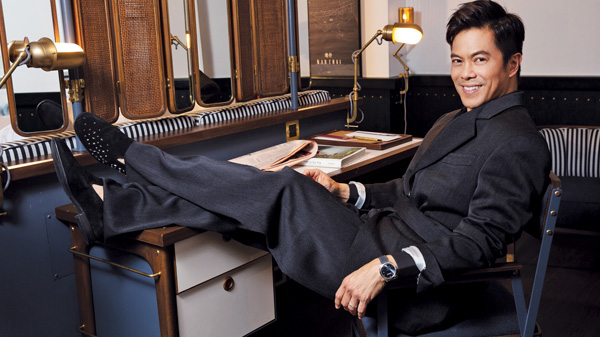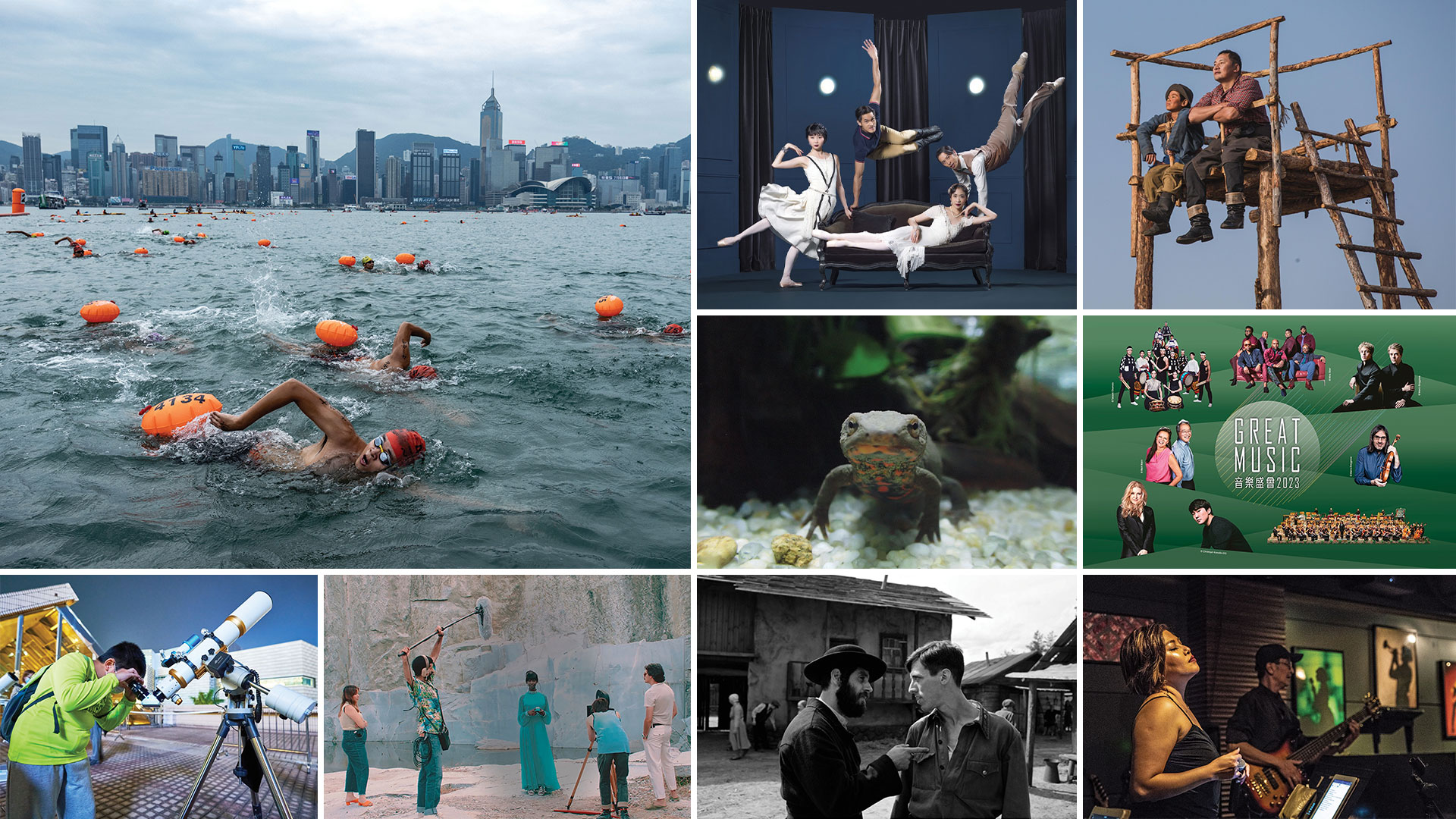
Mann of Action: Wu Assassins star Byron Mann on his Hollywood journey
Byron Mann, Hong Kong’s most promising export to Hollywood, talks to us about what it is like to be an Asian actor in Western films and his latest success story, Wu Assassins.
You studied law before turning to acting. When did you realise that films were your true calling?
Well, I figured out law wasn’t right for me during my first year of law school itself. I was interning at a law firm in Hong Kong over summer break, when my manager there suggested I pursue something else. He asked me what I would like to do instead and I told him that I used to like acting in high school. He was the one who suggested that I should try my hand at it, because the University of Southern California – where I was enrolled at that time – is in Los Angeles, just minutes away from Hollywood. And that is exactly what I did over the next few years of college. By my third year, I had already signed up for a movie. So even before I had graduated, I knew that I wanted to act for a living.

Did you go through the struggling actor period?
Not in the traditional sense. Having started young, I was quite excited about the prospect of acting. I couldn’t believe they were paying me to do it, I would have done it for fun. Fortunately, as I was already based in Hollywood, I didn’t have to struggle too much, I was landing roles pretty much from the start. I think, if there’s any struggle, it’s in keeping yourself fresh for any new challenge after you’ve been acting for 10 or 15 years.
Do you think that being an Asian worked in your favour?
I really believe that there are roles for everyone in Hollywood. And I’m talking about the mid-’90s, way before Crazy Rich Asians happened. Of course, the roles available to a Caucasian actor were more in number than those available to an Asian, but there were fewer Asians competing for those parts than Caucasians at that time.

What do you consider as a turning point in your career?
There have been several such moments actually, but none of them made an impact overnight. I did this film called The Big Short in 2015. During the production phase, it was a low-budget film and nobody knew anything about it. But after it came out, it got more and more popular. I started feeling its impact over a year later, when producers and directors approached me for roles because they had all seen the movie. They all said they loved how evil I was in that cameo role.
Is there any particular decision you made that you would like to go back and change?
If there’s anything that springs to mind, it’s that for the first 10 years of my career, I only wanted to do feature films. I had grown up watching such great movies as The Last Emperor, Schindler’s List and so on. As a result, I was quite focussed on only signing full-length films and not TV shows. If I had to do it all over again, I would surely consider acting in both mediums.

Do you think that Hollywood has become more sensitive to Asian cultures over time?
I definitely think that there’s more awareness in Hollywood now than there was 20 years ago. There are several reasons for that. First and foremost is, of course, easy access to the Internet. Researching a character’s background and culture has become much easier. Secondly, there’s the emergence of China and India on the global stage. These are huge markets and Hollywood studios definitely don’t want to rub them the wrong way.

How different is the experience of shooting a full-length feature film from doing a TV series?
I would compare a feature film to a sprint, whereas a TV series is like a marathon. In feature films, you have to tell the whole story in two or three hours, so the intensity is at a different level. Having said that though, I think the two experiences are becoming more and more similar now, thanks to streaming services like Netflix or Amazon Prime. For example, I acted in Altered Carbon and more recently in Wu Assassins on Netflix. Let’s say there are 10 episodes in each series, with a budget of over US$15 million for each episode. Given the money involved, the production quality is very high – it’s like shooting 10 feature films of shorter lengths.

Do you think that streaming services will soon eclipse the theatre-going experience?
That’s already happening to an extent, but I don’t think streaming will completely overshadow the cinematic experience. There’s something unique about collective theatre-viewing. You can’t completely recreate that at home. But, thanks to streaming services, you can watch very high-quality productions at leisure in your own home, at own your pace, and there is definitely a place for that as well.
What are your thoughts on Wu Assassins’ popularity?
Wu Assassins’ popularity has really exceeded my expectations. As of 23 August, it was ranked the third most-watched show in the world. What has surprised me the most is how audiences worldwide have responded to some of the racism issues addressed in the show. There’s a scene in episode 7 where my character responds to a racist waitress by educating her about the history of Chinese people in America. That scene has gone viral worldwide and has been one of the main talking points for the show. That’s very gratifying for me.

What was it like playing Uncle Six, who had a huge character arc in Wu Assassins, so much so that the audience ends up rooting for the villain?
The character of Uncle Six that I played in Wu Assassins has been a highlight in my career – a rather unexpected highlight, I might add. I signed up for this show because I had worked with the creator / producer John Wirth previously on AMC’s Hell On Wheels. I had such camaraderie with John that when he asked me to do this show, I said yes without even knowing much about the character or the series.
But I am glad that I said yes. I had a good time getting into the skin of this character and creating a contrast between how he looks at present and how he looked like 15 years ago, and following him on his journey when he lost his fire power and became a mere human, particularly what he looked like and how he felt when he took a road trip with his adopted son in episode 7. It was important for me to play a real human being instead of a stereotypical Triad boss. That was the challenge for me.

Finally, who’s your favourite actor?
Ah, there are so many… Al Pacino, Denzel Washington, Gene Hackman, Daniel Day-Lewis, Meryl Streep… I would like to compare acting to really good food. After you’ve tasted something delicious, you think about it even after the meal is finished. It’s the same with movies. After you watch a good movie, you walk out of the cinema hall and still think about it. That’s good acting there if it moves you and gives you pause for thought. All the actors I just named are the ones who have moved me deeply with their acting prowess.
Thank you.
Interview by: Suchetana Mukhopadhyay
Photos: Jack Law
Art Direction & Styling: San Wong
Grooming: Chris Yu @ Morphologique
Venue: The Fleming Hong Kong
Wardrobe & Accessories: Etro, BOSS, Jimmy Choo, Giorgio Armani, Chopard, Cerruti 1881







